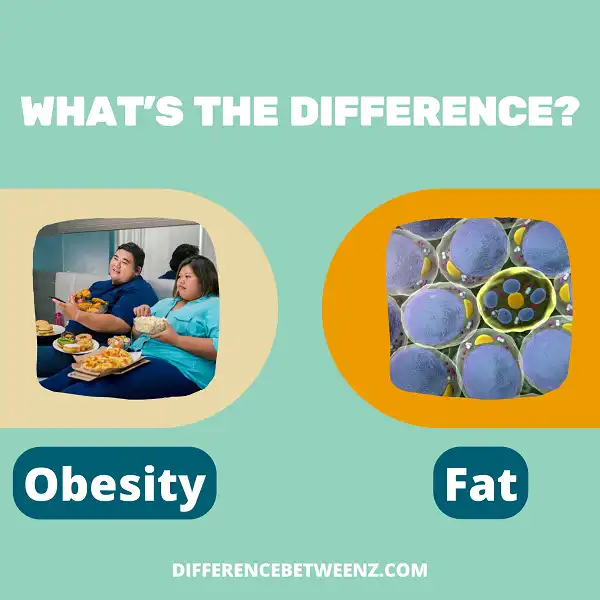In the world of weight loss and dieting, there is a lot of talk about obesity and fat. But what is the difference between the two? And does it even matter? Let’s take a closer look at the differences between obesity and fat, and see if we can clear some things up.
What is Obesity?
Obesity is a medical condition in which excess body fat has accumulated to the extent that it may have a negative effect on health. Body mass index (BMI) is a measure used to determine whether an individual is overweight or obese. A BMI of 30 or above is considered obese, while a BMI of 25-29.9 is considered overweight. Obesity increases the risk of several conditions, including heart disease, stroke, type 2 diabetes, and certain types of cancer. It is important to note that obesity is not simply a cosmetic issue; it is a serious medical condition that can have significant negative effects on health. Treatment for obesity often includes lifestyle changes such as dietary modifications and increased physical activity. In some cases, medication or surgery may be necessary to achieve long-term weight loss.
What is Fat?
Fat is one of the three main macronutrients, along with carbohydrates and protein. In fitness terms, it is stored in the body in adipose tissue and is used as a source of energy. It also helps to insulate and protect vital organs. Although it is essential for good health, too much fat can lead to obesity, which is a major risk factor for heart disease, stroke, and type 2 diabetes. For this reason, it is important to maintain a healthy balance of fat in the diet. The best way to do this is to eat plenty of fruits, vegetables, and whole grains, and to limit processed foods and saturated fats.
Difference between Obesity and Fat
Obesity and fat are often used interchangeably, but they are actually quite different. Obesity is a medical condition that occurs when someone has too much body fat. It is usually measured by Body Mass Index (BMI), which takes into account a person’s height and weight. Fat, on the other hand, is a type of tissue that stores energy. Everyone has some fat, and it is essential for survival. However, too much fat can lead to obesity. Genetics, diet, and lifestyle all play a role in how much fat someone has. Obesity can increase the risk for serious health problems, such as heart disease, stroke, and diabetes. Therefore, it is important to be aware of the difference between obesity and fat.
Conclusion
Obesity and fat are not one and the same. It’s important to understand the difference, especially when it comes to weight loss. Fat is necessary for our bodies to function; obesity is a condition that develops when we have too much body fat. If you’re looking to lose weight, make sure you target obesity, not simply being overweight. And if you need help determining whether or not you fall into the obese category, don’t hesitate to reach out for professional assistance.


